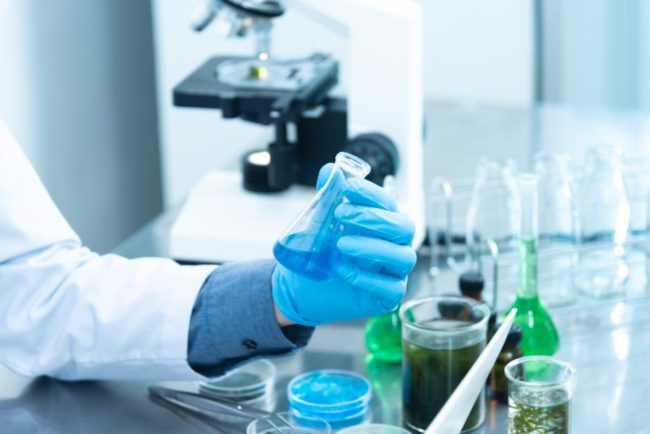The United States had a total of 331,700 clinical laboratory technologists and technicians in the year 2018. Individuals in this group earn, on average, $52,330, and above annually. Technicians in the labs play an important role in testing and analyzing body fluids, tissues, and other critical samples.
At the helm of the hierarchy in a lab setting is the lab manager. Lab managers have the responsibility of bringing on board their managerial skills and knowledge to ensure safety and efficiency in the running of the laboratory’s routine operations.
As such, laboratory managers need to be a cut above the rest in their capacity to oversee daily lab-related activities.
Are you wondering what it takes to be a laboratory manager? These eight skills top the critical prerequisites.
What Do Laboratory Managers Do?
Lab managers are at the core of the management of routine operations in the laboratory. The managerial roles in a lab include scheduling staff, approving orders for supplies, and ensuring the safety standards within the lab are adhered to at all times.
Labs handle rather sensitive components, samples, and specimens. For this reason, the expectation on managers to ensure thoroughness in overseeing the procedures within a lab is high. But how do laboratory managers ensure they fulfill their responsibilities to the best of their abilities?
Essential Skills for Lab Managers
The role of a lab manager can be overwhelming if you lack the right skills. Here are some of the skills that are central to this role.
1. Leadership
Not all managers are leaders. But for you to thrive in the role of a laboratory manager, you must double as a leader. You will have to spend significant time leading the various research teams towards achieving set organizational goals.
So, how can you lead such teams if you aren’t a leader? A leader teaches the subordinates how to follow by leading in their own right. Rather than making commands, a leader leads from the front.
Leading is, therefore, an essential skill for anyone seeking to succeed in their role as a lab manager.
2. Communication
Having communication skills is a must for laboratory managers. You’ll need to communicate with technicians and scientists at various levels of operations. You’ll also need to collaborate with other executives and stakeholders to ensure that you achieve specific goals. Laboratory managers must, therefore, harness the ability to be good communicators.
You will need excellent communication skills to pass information or when communicating decisions to stakeholders and subordinates. Lab managers also need to be good communicators to continually communicate the organization’s course of action, given varying situations.
3. Laboratory Managers Should Be Good Planners
A lot goes on in a research laboratory. You need to schedule meetings, keep track of orders made, and still run the routine affairs of the lab. Without a proper plan of action, it’s easy to get overwhelmed.
Do you want to succeed in your role as a lab manager? It would be best if you focused on improving your planning skills. Such skills allow you to juggle multiple delicate functions and tasks with minimum pressure.
4. Incredible Conflict Resolution Skills
Regardless of how small a research lab is, laboratory managers need to be aptly ready for probable instances of conflicts among staff. Conflict resolution skills include the ability to ensure impartiality when determining the root of a conflict. Your subordinates trust you to make unbiased decisions on various issues of interest to them.
It would help if you exercised high levels of wisdom to ensure that both conflicting parties are heard. Lab managers should be capable of finding appropriate channels for conflict resolution.
5. Financial Management Skills
Most of the laboratories survive due to constant requests for grants and support from well-wishers or other sources. But even when these sources offer such grants, there is the question of proper utilization of the funding.
Often, the ability to attract interested financiers depends on the lab managers’ financial management abilities. You need to know how to determine business priorities when deciding on where to inject the finances. Being an astute financial manager is an important skill when at the position of an executive in a lab setting.
6. Innovation Skills
The research and design sub-sector is changing fast. But often, lab managers assume that the most important thing is to hire innovative employees. This is a significant flop for it limits your ability to steer the process of innovation within the lab.
Are you looking to become an effective lab manager? You need to continually harness your innovative skills to ensure that you remain on top of the technology shifts that are shaping modern research labs. You can gain creative skills by seeking advanced courses or through active self-learning.
Whichever the case, having innovative attributes is an essential addition for any lab manager.
7. Occupational Health and Safety Awareness
The core responsibility of lab managers when managing the lab setting is to ensure the safety of the lab staff remains intact. Laboratory managers must seek to acquire the right equipment handling skills to limit the risk of health hazards.
Lab managers must understand how to handle research lab test equipment. Such knowledge helps in ensuring that the operational environment is safe from any hazards.
Occupational awareness skills, therefore, help lab managers to reduce cases of compensation due to work-related injuries.
8. Exceptional Meeting Skills
The lab manager is the face of the unit. Consequently, the ability to manage meetings successfully is essential when dealing with internal staff or with other external partners. Setting agendas and utilizing interpersonal skills can help a lab manager achieve the most out of a meeting.
For this reason, effective meeting skills are essential for any lab manager. Meetings are a real game-changer when managing corporate affairs. Ensure that your presence and contributions in such meetings are impactful by making follow-ups and being a keen listener.
The Accurate Measure of a Lab Manager’s Value Is Through Performance
Nothing defines laboratory managers and their value better than measuring their performance. Are you keen on improving your skills in the management of lab-related affairs? These eight skills can be useful additions to your profile.
With these skills, you’ll be sure to lead a lab workforce that is highly motivated and hence achieve high levels of success.








